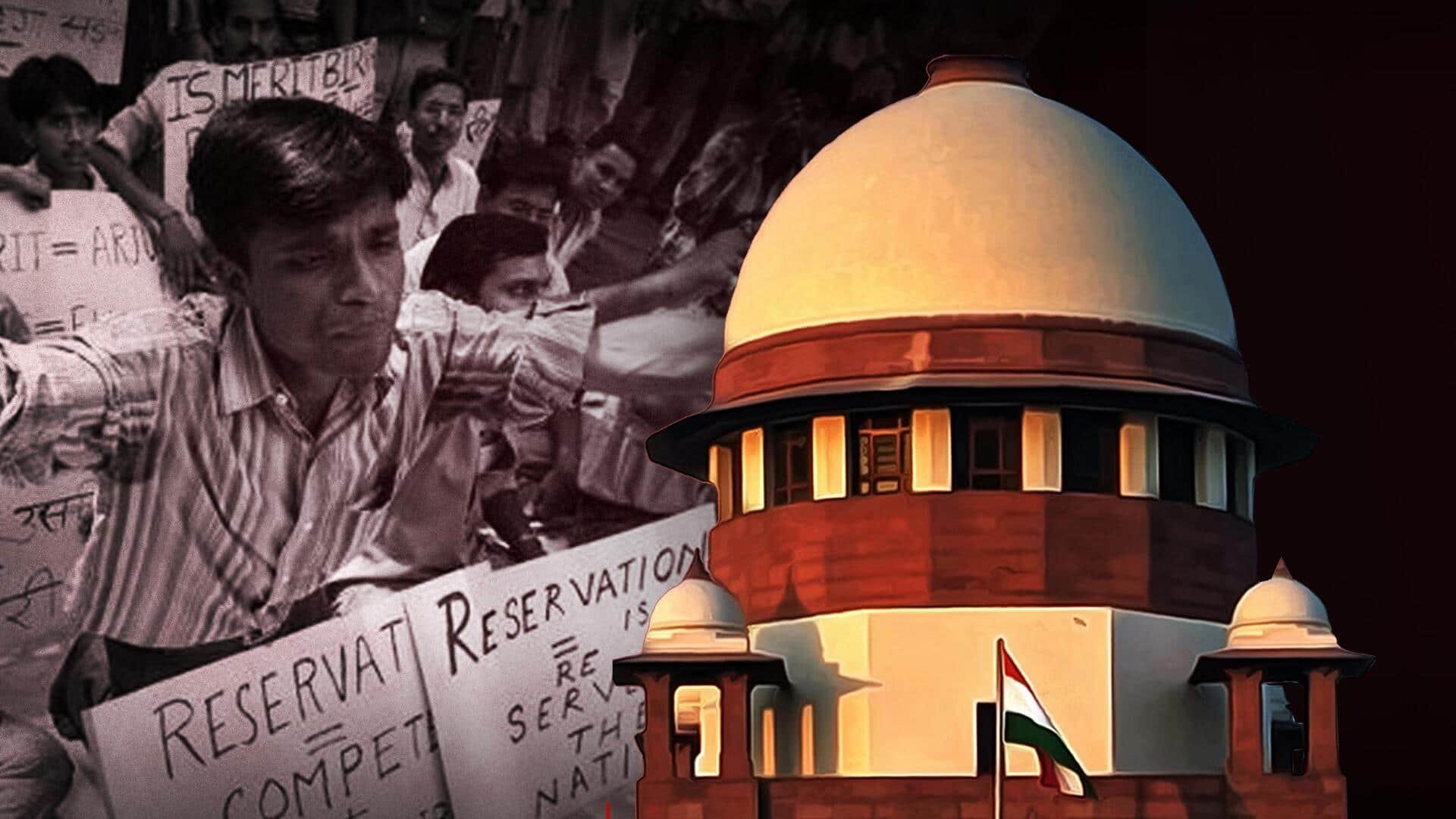
Quota within quota: Supreme Court approves sub-classification for SCs, STs
What's the story
The Supreme Court's seven-judge Constitution bench on Thursday approved the sub-classification within the Scheduled Caste and Scheduled Tribe categories to enhance reservation in jobs and education for the most marginalized groups. The landmark ruling—delivered by Chief Justice of India DY Chandrachud's bench with a 6:1 majority—saw Justice Bela Trivedi dissenting. The bench issued six separate judgments. Notably, this decision overturns the 2004 ruling by a five-judge Constitution bench in the case of EV Chinnaiah vs State of Andhra Pradesh.
Context
Why does this story matter?
The ruling will significantly impact states aiming to extend greater protection to castes that remain grossly underrepresented, despite existing reservations, compared to the so-called dominant Scheduled Castes. The bench was reconsidering its 2004 judgment, which declared that Scheduled Castes formed a homogenous group, thereby prohibiting any sub-division among them.
Information
SC's earlier judgment on sub-catergorization
On February 8, 2024, the bench reserved its judgment on the reference made to it. The Supreme Court indicated that without sub-classification, the "advanced among" these castes "would grab all benefits." This review involved examining a 2004 judgment where a five-judge bench determined that only the President could designate which communities could receive reservation benefits under Article 341 of the Constitution, and states lacked the authority to alter this.
Historic overturn
Court supports sub-classification
During the hearing, the Centre informed the court of its support for sub-classification within the Scheduled Caste and Scheduled Tribe categories. The Chief Justice noted the difference between "sub-classification" and "sub-categorization," adding that states may need to sub-categorize reserved category communities to ensure that benefits reach the most backward groups.
Equality push
SC/ST members face systemic discrimination, says CJI
Chief Justice Chandrachud said, "There are six opinions. Mine is for Justice Manoj Misra and me. A majority of us has overruled EV Chinnaiah (verdict) and we hold sub-classification is permitted." He added that members of SC/ST categories often face systemic discrimination which hinders their progress, adding that historical evidence shows these depressed classes are not a homogenous group.
Reservation rules
Justice BR Gavai mentions BR Ambedkar's speech
Meanwhile, Justice BR Gavai said, "I have referred to a speech of Dr BR Ambedkar in 1949 where he said that unless we have social democracy there is no use of political democracy." "Hardships and backwardness suffered by some of the Scheduled Castes is different for each caste. EV Chinnaiah was wrongly decided. It was argued that a party can give reservation to a sub-caste to gain political mileage, but I do not agree with this," he said.
Justice Trivedi's opinion
What did the dissenting opinion say
In a dissenting opinion, Justice Bela Trivedi argued that the subclassification of SCs and STs by state governments contravenes Article 341 of the Constitution, which grants the President the authority to compile the list of SCs and STs. Justice Trivedi emphasized that Article 341 was designed to prevent political manipulation of the SC/ST list. Moreover, she warned that preferential treatment for any sub-class within the Presidential list could unjustly deprive benefits from other communities within the same category.